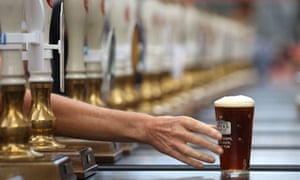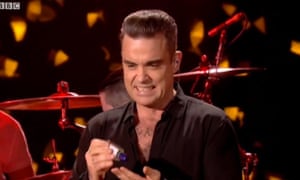A study published in the Journal of Oral Rehabilitation reports that more than 100,000 A&E visits a year are caused by tooth problems, with patients trying to avoid NHS dental charges by going to hospitals for free treatment, frequently at weekends.
This comes as no surprise. While it’s said that it will soon be possible to identify whether someone is rich or poor simply by how overweight they are, I’ve long thought that dentistry could turn out to be another poverty indicator, with many of the poorest unable to afford to maintain basic dental health.
In some areas of the country, NHS dentists are notoriously hard to find and oversubscribed, but it doesn’t end there. NHS dentistry is chronically underfunded, with patients forced to make up the shortfall for treatment costs, whatever their personal circumstances, while dentists who treat NHS patients complain that fixed fees don’t cover the time spent on complex issues.
British dental problems aren’t always about money; children are entitled to free care, but figures showed that two out of five hadn’t visited an NHS dentist in the past year. However, it does seem to be about money when so many adults are clogging up A&E departments or, as reported last year, turning to GPs, who are obviously ill-equipped to treat them.
Put bluntly, the poorest in British society are increasingly becoming too frightened to go to the dentist, not because of the treatment, but because of the cost. This is shameful. If these findings are anything to go by, Britain is well on the way to regaining its international reputation for notably bad dental health. Not all Britons, of course, just those who can’t afford basic care, with “basic” being the operative word.
At the risk of being accused of liberal hand-wringing, this feels very personal to me because, where dental treatment is concerned, I’ve been such a spoilt cow. When I was last with an NHS dentist, I was always able to afford upgraded treatment over the basic option, but it was obvious that for some people that “choice” was going to be as stark as the choice between extracting a tooth or – the more expensive option – trying to save it.
Then there’s cosmetic dentistry. I’m just coming towards the end of a lengthy period in adult braces, which has been quite an experience – I look as though I’m permanently vomiting a garden gate. Away from the comedy aspect, I’m painfully aware of how lucky I am. My orthodontic treatment, even with a finance plan, will have been way out of reach for many people. These are people who’d need the same treatment (which, without boring you with details, wasn’t purely cosmetic), but wouldn’t have been able to afford it or even been given the chance on the NHS.
Where teeth are concerned, what does “cosmetic” even mean anyway? Not everyone wants gleaming, whitened TOWIE choppers, but nor are teeth just for chewing. Teeth aren’t optional – teeth are crucial. And teeth are emotional. Not only is toothache vile, with teeth linked to general good health; people need teeth for everything from work and job interviews to personal confidence, relationships and every conceivable form of social interaction.
It’s not enough to say: “Well, look after them then.” Of course people should look after their teeth and most people, rich and poor, try their best. However, when things go wrong, it can’t be anything but a disgrace if people are so scared by dental costs that they end up sitting in casualty departments in the hope of free care.
This should be a source of national shame, as should be the growing realisation that it won’t be too long before a person’s social circumstances can be accurately assessed simply by them opening their mouth.
Who really needs a booze bracelet?

Excitement is mounting as the world gets ever closer to a tracking device to tell you exactly how disgustingly sloshed you are. And that’s because, on realising how drunk we are, all of us are likely to say: “Good heavens, in that case, I must depart this fine hostelry to make my way homewards.” Because that’s how it always works, especially in Britain.
Milo Sensors, from California, has developed a product called Proof. It is “wearable technology” (or how about just admitting it’s a bracelet?), a bit like a Fitbit, and it monitors blood alcohol levels, alerting you to the point where you may start feeling the urge to sing, dance, cry or express your viewpoint more candidly than usual – a bit like being in a Question Time audience, only with more alcohol and less Brexit.
Where was this miraculous “stop boozing you idiot!” device when the likes of me sorely needed it? The angst we’d have avoided, the time we’d have saved, all those deathly mornings ringing around apologising for behaviour you couldn’t remember to people who’d rather not speak to you.
However, maybe the answer is that people like me didn’t need it. Or more precisely, we wouldn’t have heeded it. Instead of electronic devices, previous generations had these things called partners, family, friends and bar staff who told you when you’d had enough…and whoever bothered listening to them?
In which case, how many people are going to take any notice of an electronic bracelet nagging them about their alcohol levels?
I still like Proof as an idea, and I’d still like them to send me a free one, but it seems fated to be used by people who are more likely to be intoxicated by new technology than they are by alcohol.
It’s touching how much Robbie Williams likes his fans

Robbie Williams has responded to the furore over the incident on New Year’s Eve, when, after shaking hands with members of the excited crowd, he was shown squirting sanitiser on to his mitts, his face plastered with the kind of grimace usually reserved for old footage of cow rectal examinations on All Creatures Great and Small.
Williams isn’t a complete PR dolt, so he’s now issued an amusing video of himself using hand sanitiser after he’s touched a family member.
Well played. However, it’s not quite enough to dispel the feeling that as much as celebrities such as Williams say they “love” their fans, it’s nowhere near as much as they love a nice relaxing bath in scalding hot Dettol after they’ve had anything to do with them.
The feeling that this “love” they feel for fans may be a tad selfish and needy, as in, wholly to do with wanting them to continue buying their stuff. And as much as they want to reach out to their public and touch hearts and lives, this doesn’t include any other kind of touching or the little bottle of Carex hand gel is coming out again.
Now, open wide. Then I can tell how rich you are | Barbara Ellen
Hiç yorum yok:
Yorum Gönder